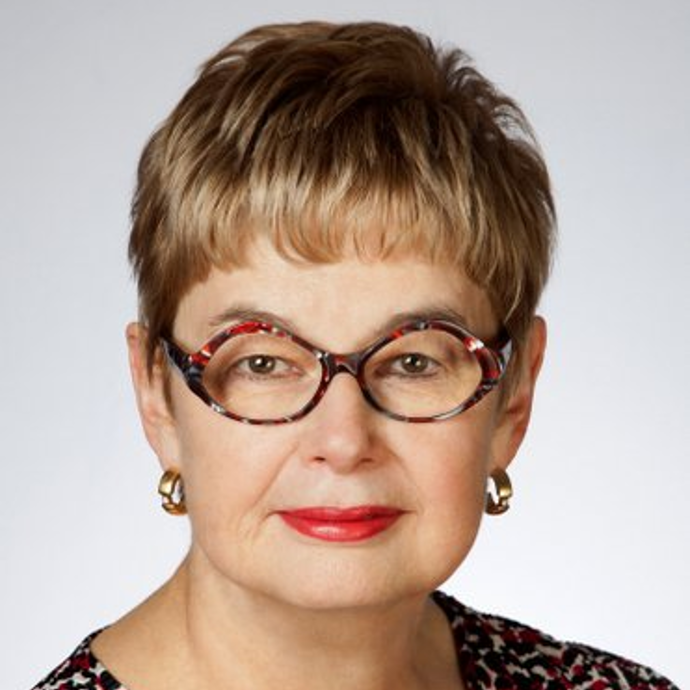
Justice Ellen Picard, OC, ('64 B.Ed, '67 LLB, '80 LLM) has had the kind of career that many dream about but never truly experience. Widely known for founding the country's very first Health Law Institute, the retired justice has been recognized and respected for her contributions to the legal profession and the community at large.
Before she became a justice of the Court of Queen's Bench of Alberta, the Supreme Court of the Northwest Territories and the Court of Appeal of Alberta, she was a student at UAlberta Law and the first person in her family to ever attend law school and become a lawyer.
"Law wasn't something I thought about doing as a school girl. I actually wanted to be a doctor," she said.
That idea changed when her family moved from the small town of Blairmore, Alberta, to Edmonton.
After she started high school, her new friend Anne Russell persuaded her to study law (notably, Russell herself became a judge, and served on all three courts in the province before retiring in 2006).
In 1972, just five years after graduating and after articling and practicing at an Edmonton law firm, Picard returned to the Faculty - this time as a professor.
Throughout her time as a law student and as a professor, she was mentored by Dean Wilbur Bowker, OC, LLD, KC, who encouraged and supported her.
"I was the first woman on the faculty of Law full time, and I believe the second in Canada," she said.
Picard also served as associate dean from 1974 to 1975 and again from 1980 to 1981. Between those two periods, in 1977, the Institute was officially born.
At the time of the Institute's inception, the term "health law" did not really exist and the scope of inquiry was extremely restricted. Picard had the foresight to sense that social issues associated with health, biomedical research and the delivery of health care would gain prominence and social significance. She also saw how crucial it was to study health law in a manner that brought together a range of relevant disciplines, including law, economics, nursing, medicine and ethics.
Professor Timothy Caulfield, now Research Director of the Institute, said he first met Picard when he was a Research Associate in the early 90s.
"She [Picard] is one of those individuals that is immediately impressive. Of course, I had heard of her while I was law student, so I was a little in awe when we first started working together. She was immediately approachable, supportive and always seemed to have time for my questions and comments - which I'm sure were ridiculously simplistic and ill informed!" he said.
As a result of her longstanding contributions to the university, Picard was awarded an honorary LLD from UAlberta in 1992.
"I loved teaching. My law school days were wonderful," she said.
In contrast, "My judicial days were challenging, heartbreaking," she said.
Now, Picard is celebrating the release of the fifth edition of her book, Legal Liability of Doctors and Hospitals in Canada, which she co-authored with UAlberta Law Professor Emeritus Gerald B. Robertson, QC and published originally in 1978. This book - from its first to recent edition - is without a doubt one of the most significant works in the entire field of Canadian health law.
One big difference readers may notice between Picard's book and other publications of a similar topic is the language used.
"I'm a very big believer in plain writing," she said. "The first edition, I sent it to an aunt who was a nurse and asked if she could understand it."
She said people were "mystified and amused" when she first told them about her idea to write a book, but didn't let that stop her from fulfilling what she saw as a "void in health law" and a "need for guidance" in Canada.
Though she may no longer be sitting in court every day, Picard is keeping busy in her retirement, which began in 2016, the same year she was awarded one of Canada's highest civilian honours.
"I never in my wildest expectations thought I would get the Order of Canada," she said.
She has also undertaken a new style of writing.
"I have two granddaughters and I've been writing children's stories," she said, perhaps hinting at what her next publication could be.